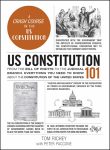Book Review :: EtC by Laura Mullen

Review by Jami Macarty
In Laura Mullen’s EtC, “each good lyric [is] dislodged from its place,” making way for “each new definition” of “what to let matter, and how much, and when.” What matters to Mullen is what is “Reserved for advertising”—the female body, “Elsie the C,” corporate power, and the “Industrialization of America’s / food supply.” “[T]here are / Always more cows,” but “repetition could lead to estrangement.”
The collection’s title, EtC, doubles as the abbreviation for the Latin phrase et cetera and as an anacronym for “Elsie the Cow.” “It’s a matter / Of emphasis.” Or “repetition could lead to” a narrator “uncertain, potentially mistaken, exposed as unreliable.” “Nothing in this book / should be confused / with the actual.”
What is in this book is “an arrangement / Of grievances,” “a collection of cuts” related to “a mostly hostile country. America. A land where you’re expected to pay, one way or the other for intimacy.” Between “the world that is / and exhibition,” Mullen is “trying to make the word [milk] come back to sense” as nourishment and eschew extraction.
Whether what is “Measured in exchange” is “Meat or milk” or a woman’s body that “became another border to be crossed,” Laura Mullen’s EtC asks “The most urgent questions facing us.” The poet leaves the reader contorting the “Sacred, scared, / Scarred.”
EtC by Laura Mullen. Solid Objects, November 2023.
Reviewer bio: Jami Macarty is the author of The Long Now Conditions Permit, winner of the 2023 Test Site Poetry Series Prize (forthcoming University of Nevada Press), and The Minuses (Center for Literary Publishing, 2020), winner of the 2020 New Mexico/Arizona Book Award – Poetry Arizona. Jami’s four chapbooks include The Whole Catastrophe (Vallum Chapbook Series, 2024) and Mind of Spring (Vallum Chapbook Series, 2017), winner of the 2017 Vallum Chapbook Award. To learn more about Jami’s writing, editing, and teaching practices, visit her author website.

















































